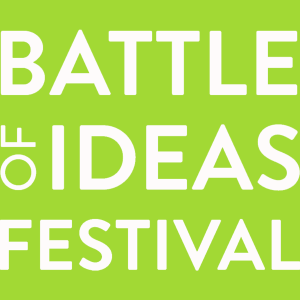
- Podcast Features
-
Monetization
-
Ads Marketplace
Join Ads Marketplace to earn through podcast sponsorships.
-
PodAds
Manage your ads with dynamic ad insertion capability.
-
Apple Podcasts Subscriptions Integration
Monetize with Apple Podcasts Subscriptions via Podbean.
-
Live Streaming
Earn rewards and recurring income from Fan Club membership.
-
Ads Marketplace
- Podbean App
-
Help and Support
-
Help Center
Get the answers and support you need.
-
Podbean Academy
Resources and guides to launch, grow, and monetize podcast.
-
Podbean Blog
Stay updated with the latest podcasting tips and trends.
-
What’s New
Check out our newest and recently released features!
-
Podcasting Smarter
Podcast interviews, best practices, and helpful tips.
-
Help Center
-
Popular Topics
-
How to Start a Podcast
The step-by-step guide to start your own podcast.
-
How to Start a Live Podcast
Create the best live podcast and engage your audience.
-
How to Monetize a Podcast
Tips on making the decision to monetize your podcast.
-
How to Promote Your Podcast
The best ways to get more eyes and ears on your podcast.
-
Podcast Advertising 101
Everything you need to know about podcast advertising.
-
Mobile Podcast Recording Guide
The ultimate guide to recording a podcast on your phone.
-
How to Use Group Recording
Steps to set up and use group recording in the Podbean app.
-
How to Start a Podcast
-
Podcasting
- Podcast Features
-
Monetization
-
Ads Marketplace
Join Ads Marketplace to earn through podcast sponsorships.
-
PodAds
Manage your ads with dynamic ad insertion capability.
-
Apple Podcasts Subscriptions Integration
Monetize with Apple Podcasts Subscriptions via Podbean.
-
Live Streaming
Earn rewards and recurring income from Fan Club membership.
-
Ads Marketplace
- Podbean App
- Advertisers
- Enterprise
- Pricing
-
Resources
-
Help and Support
-
Help Center
Get the answers and support you need.
-
Podbean Academy
Resources and guides to launch, grow, and monetize podcast.
-
Podbean Blog
Stay updated with the latest podcasting tips and trends.
-
What’s New
Check out our newest and recently released features!
-
Podcasting Smarter
Podcast interviews, best practices, and helpful tips.
-
Help Center
-
Popular Topics
-
How to Start a Podcast
The step-by-step guide to start your own podcast.
-
How to Start a Live Podcast
Create the best live podcast and engage your audience.
-
How to Monetize a Podcast
Tips on making the decision to monetize your podcast.
-
How to Promote Your Podcast
The best ways to get more eyes and ears on your podcast.
-
Podcast Advertising 101
Everything you need to know about podcast advertising.
-
Mobile Podcast Recording Guide
The ultimate guide to recording a podcast on your phone.
-
How to Use Group Recording
Steps to set up and use group recording in the Podbean app.
-
How to Start a Podcast
-
Help and Support
- Discover

Battle of Ideas Festival Audio Archive
Society & Culture

Recorded at Open for Debate on Saturday 31 July at Church House, London.
ORIGINAL INTRODUCTION
Whether in debates about Brexit, lockdown, Black Lives Matter or gender issues, today’s political discourse feels more brittle and toxic than ever before. Denunciations replace debate. Caricatures of people’s opinions are deployed to delegitimise those we disagree with. Twitter pile-ons attempt to ‘cancel’ people. Even politicians across all parties encourage Big Tech to censor what some deem to be misinformation about Covid, vaccines or lockdowns in general, labelling a wide range of views as conspiracy theories. On every side of political debate, caricatures of our opponents views’ seem to replace honest engagement. For example, those in favour of lockdowns dismiss sceptics as uncaring, and those against them dismiss advocates as fascists.
Debate in general has been replaced by something sinister. Take the events at Batley Grammar School. A teacher was suspended and forced into hiding for fear of his life after being subject to protests – and threats – for showing a cartoon of the prophet Mohammed in a lesson about blasphemy. Some feel this appears to have brought in a blasphemy law by the back door. Many worry that if what can be said is dictated by non-educational standards – like avoiding offence – then teachers will be hindered in teaching the curriculum.
More broadly, there appears to be a demand for conformity, an enforced consensus on certain issues, and dissent is often demonised. As the slogan ‘silence is violence’ insists, even staying quiet on contentious issues is not enough. It is clear which are the ‘correct’ views, and these appear to becoming increasingly insisted upon by major institutions in society.
Even at the heart of educational institutions, where one might hope to find open-ended inquiry that could usefully counter one-sided intellectual bubbles, we instead find that both schools and universities are widely accused of being hotbeds of groupthink. From the fact that academics overwhelmingly backed Remain in the 2016 EU referendum to the widespread endorsement by teachers of pupils attending climate change ‘school strikes’, many insist that education is suffering from a lack of viewpoint diversity.
In universities, polls show conservative-leaning students and academics feel forced to conceal their views for fear of being demonised or even penalised in terms of marks, research grants and career prospects.
Even if exaggerated by some, the idea of a silent majority (or even minority) who feel nervous about arguing against so-called ‘woke’ opinions rings true for many. No-platforming, safe spaces, trigger warnings – these terms are now part of the public conversation and suggest a lack of tolerance and willingness to debate conflicting ideas. In contrast, others argue that those deploying these terms are indulging in a right-wing moral panic about ‘cultural Marxism’ that boils down to little more than a desire by conservatives to protect the status quo.
Is this chasm unbreachable? How do we open up debate in these circumstances? What happens to dissent and critical thinking? Do one-sided discussions merely encourage us to adopt one tribe’s views and dismiss all others? How can we encourage people, especially the young, to think for themselves and assess ideas on their own merit? Or, as many insist, is debate simply a cover to avoid challenging abhorrent, conspiratorial, bigoted, or ‘dangerous’ opinions? How can all of us learn to argue better?
SPEAKERS
Arif Ahmed
reader in philosophy, University of Cambridge; fellow, Gonville and Caius College; free-speech campaigner
Dr Shahrar Ali
spokesperson for policing and domestic safety, Green Party; author, Why Vote Green 2015
Claire Fox
director, Academy of Ideas; independent peer, House of Lords; author, I STILL Find That Offensive!
Reverend Seminarian Calvin Robinson
senior fellow, Policy Exchange; subject matter expert, National Centre for Computing Education; former assistant principal
CHAIR
Ella Whelan
co-convenor, Battle of Ideas festival; journalist; author, What Women Want
More Episodes
 2025-04-03
2025-04-03
 1
1
 2025-04-03
2025-04-03
 1
1
 2025-04-03
2025-04-03
 2
2
 2025-04-03
2025-04-03
 2
2
 2025-04-03
2025-04-03
 1
1
 2025-04-02
2025-04-02
 2
2
 2025-04-02
2025-04-02
 2
2
 2025-04-02
2025-04-02
 10
10
 2025-04-02
2025-04-02
 4
4
 2025-04-02
2025-04-02
 2
2
 2025-04-02
2025-04-02
 4
4
 2025-04-02
2025-04-02
 4
4
 2025-04-02
2025-04-02
 3
3
 2025-04-02
2025-04-02
 2
2
 2025-04-02
2025-04-02
 4
4
Create your
podcast in
minutes
- Full-featured podcast site
- Unlimited storage and bandwidth
- Comprehensive podcast stats
- Distribute to Apple Podcasts, Spotify, and more
- Make money with your podcast
It is Free
- Privacy Policy
- Cookie Policy
- Terms of Use
- Consent Preferences
- Copyright © 2015-2025 Podbean.com



